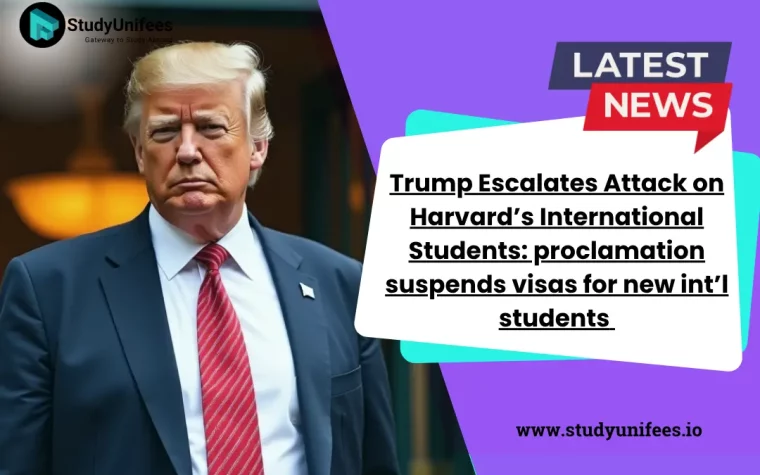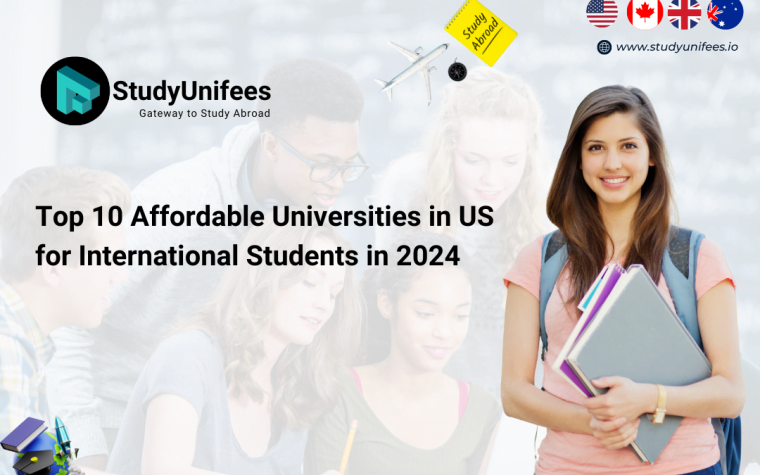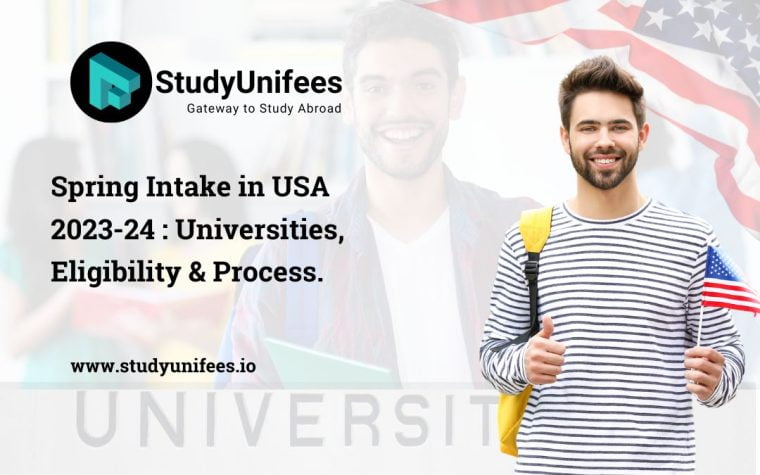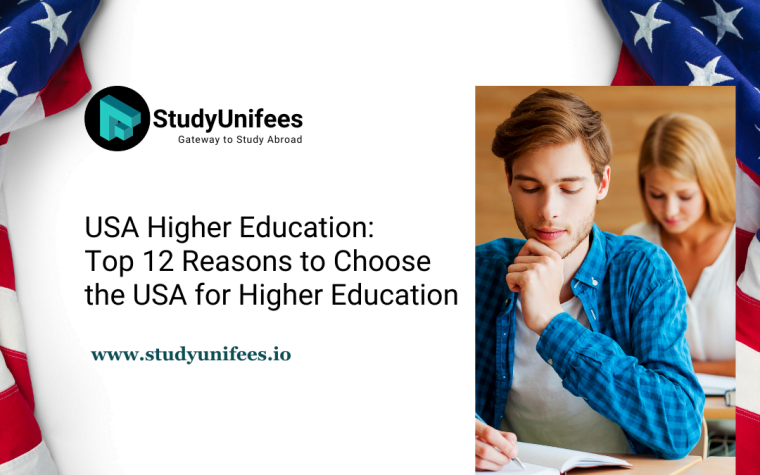Deciding on a destination for your higher education can greatly affect your future. For numerous students worldwide, the United States of America (USA) is a standout choice. The United States is a world leader in higher education, boasting a network of renowned universities, diverse academic programs, and a vibrant student life. For aspiring students seeking a world-class education and a transformative experience, the USA offers an unparalleled opportunity to pursue their academic goals and personal growth. The country has gained popularity among international students due to its prestigious universities, varied study options, and lively student culture. Within this post, we will delve into the top 12 factors that set studying in the USA apart and make it a valuable experience. Regardless of whether you prioritize academic success, research prospects, or a diverse community, the USA has something unique for all students.
- World-Class Universities
Known for its excellence, the USA has a wide range of education options including Harvard, MIT, and Stanford. You’re joining a legacy of innovators, leaders, and change-makers here. Besides providing state-of-the-art facilities and outstanding faculty, these universities boast a rich academic history. If you’re aiming high and dreaming big, studying in the USA can be the right choice for you.
- A Diverse Range of Programs
In the United States, educational opportunities are abundant and diverse. Regardless of your interests, whether it be in the arts, engineering, medicine, or any other field, there is a specialized program available just for you. With such a wide range of courses to choose from, you are not limited to a specific path; instead, you have the freedom to explore various subjects and discover where your passions lie. Unsure about your academic pursuits? No problem! The American education system encourages experimentation, giving you the chance to sample different areas of study before committing to one. It’s akin to having an extensive array of knowledge at your fingertips, enabling you to try as many options as you want until you find what best suits you.
3. Cutting-Edge Research Opportunities
The USA is a dream destination for inquisitive minds and ambitious thinkers. With cutting-edge developments in various areas, the country is at the forefront of research. As a student in the USA, you won’t just be a mere bystander; instead, you’ll be actively encouraged to engage in research projects, collaborate with experienced professionals, and contribute to the pool of knowledge in your field. Imagine being part of a team that’s breaking barriers and creating history – an opportunity that awaits you here. Whether you’re an undergraduate exploring research for the first time or a graduate student working on your thesis, the unmatched resources and support available in the USA will assist you every step of the way.
- Technology and innovation
The USA is a top choice for students seeking higher education in technology and innovation. With a thriving ecosystem, the country is a global leader in technological advancements, and its universities and research institutions are at the forefront of innovative developments. Choosing to study in the USA allows students to immerse themselves in an environment that promotes creativity, critical thinking, and hands-on experience with cutting-edge technologies. The country offers state-of-the-art facilities, well-equipped laboratories, and access to industry partnerships, providing students with opportunities for groundbreaking research and practical skills that are highly sought after in today’s technology-driven world. Additionally, studying in the USA allows students to network with experts, collaborate with like-minded peers, and be part of a vibrant community that fosters technological innovation.
- Career Opportunities, income opportunities, and growth
Attending higher education in the USA not only provides students with a solid education but also opens up a variety of professional opportunities and potential for advancement. The country boasts a dynamic job market, featuring ever-changing industries in need of skilled individuals. American universities have strong connections with these industries, offering internships, co-op programs, and hands-on training to kickstart students’ careers. Additionally, the USA is home to many multinational corporations, start-ups, and innovative companies, providing students with a wide range of potential employers and career paths. Furthermore, the country fosters an entrepreneurial culture and offers support and resources for aspiring business owners. This combination of entrepreneurship and access to funding, mentorship, and networking events allows students to pursue their own business ventures and achieve success on their own terms. Choosing the USA for higher education paves the way for long-term career growth, income opportunities, and the chance to make a meaningful impact in one’s chosen field.
- Diverse cultures & vibrant lifestyle
As a result of studying in the USA, students have the opportunity to interact with people from all around the world, creating a multicultural environment that enhances their educational experiences. Campuses in the country celebrate a wide range of cultures, allowing students to make friends from different continents, learn about their cultures, and build global connections. A broader perspective and a deeper understanding of the world are provided when we are exposed to different perspectives.
Besides its cultural diversity, the USA boasts a vibrant lifestyle that appeals to students. Its bustling cities are full of entertainment choices, from malls and theaters to restaurants and sports arenas. Students can fully immerse themselves in the lively street scenes, taste a variety of cuisines, and attend concerts and athletic competitions. Additionally, the country’s breathtaking landscapes encompass everything from majestic mountains to idyllic beaches, providing opportunities for outdoor activities like hiking, skiing, and surfing.
In the USA, students can engage in a vibrant cultural environment that celebrates diversity and provides avenues for exploring the arts. Various events, such as museums, art galleries, and music festivals, showcase different traditions and offer valuable learning opportunities. Alongside academic pursuits, the rich lifestyle in the USA enables students to have a well-rounded experience and make lasting memories. It’s more than just education; it involves indulging in festivals, sampling new cuisines, and picking up new languages right on campus. The unparalleled international experience offered by the USA is truly exceptional.
- Supportive Environment for International Students
While moving to a new country for studies can be overwhelming, you’ll find comfort in knowing that in the USA, you’re not alone. Universities and colleges go above and beyond to ensure that international students feel welcomed and supported. From orientation programs and English language classes to counseling services and student clubs, there’s a wide range of resources dedicated to helping you adapt to your new life. Picture having a home away from home where you’re valued, understood, and encouraged to excel. That’s precisely the kind of environment you’ll encounter in the USA. So, even during tough times when homesickness sets in, rest assured that you have a community of fellow international students and sympathetic faculty to turn to for support.
- Work Opportunities During and After Your Studies
In the USA, students can expand their education beyond the traditional classroom setting. The country offers a plethora of work opportunities for students to gain practical experience both during and after their studies. These opportunities include internships at growing startups, research assistant positions on campus, and part-time jobs in their chosen field of study. The experiences gained while studying in the USA are invaluable. Upon graduation, students have access to one of the world’s largest and most diverse job markets. Companies ranging from tech giants and media corporations to nonprofit organizations and startups offer endless career possibilities. It’s an exciting prospect to kickstart your career in a place where your skills are highly sought-after and your potential is recognized. That is precisely what the USA provides for its graduates.
- Expanding Your Global Network
In today’s highly connected world, networking is essential. By studying in the USA, you position yourself at the heart of a wide-reaching global network. Here, you’ll have the opportunity to establish connections with fellow students, professors, alumni, and professionals in your field. These individuals can all play a crucial role in shaping your future career path. From finding a mentor to securing an internship or even making valuable connections with your dream company, the relationships you cultivate while studying in the USA are priceless. Just imagine having a diverse network that spans the entire world, always ready to support and guide you no matter where life takes you. That is the unparalleled advantage of studying in the USA.
- Unforgettable Campus Experiences
College life in the USA is much more than academics; it’s an immersive experience. From various clubs, societies, and sports teams to numerous campus events, there’s never a dull moment. No matter your interests – sports, theater, volunteering – you’ll find like-minded individuals here. Envision being part of a lively community where each day presents new opportunities for personal development and enjoyment. That’s the type of campus lifestyle that awaits you in the USA.
- Mastering the English Language
Attending a university in the USA is a wonderful chance to enhance your English proficiency. With English being the main language of instruction, you will be fully immersed and enhancing your fluency on a daily basis. Additionally, there are various tools at your disposal such as language labs, tutoring services, conversation partners, and ESL courses all aimed at helping you become a master of the language. Just imagine being able to communicate with confidence, write proficiently, and excel in an English-speaking setting. This skill will prove valuable no matter where you go in life.
- A Worthwhile Investment in Your Future
Indeed, studying in the USA can be seen as a valuable investment, requiring both time and financial resources. Nonetheless, this investment has long-term benefits. The education is of exceptional quality, the resources are extensive, and the opportunities are abundant. It goes beyond merely obtaining a degree; it lays the groundwork for a thriving and satisfying career. Just envision possessing a solid foundation, a global outlook, and a network of contacts to propel you towards success. This is precisely what studying in the USA provides, making it an astute and strategic decision for your future.
Conclusion
To summarize, pursuing education in the USA offers international students a unique and fulfilling journey. The country boasts prestigious universities, diverse academic options, a vibrant campus atmosphere, and abundant employment prospects. Interacting with individuals from various backgrounds, access to supportive resources, and opportunities for international connections enhance the overall experience for students. Upon graduation, you will be equipped with the necessary skills to achieve your professional goals, whether it be a successful career, groundbreaking research, or worldwide connections. Hence, selecting the USA as your destination for studies can pave the way for an accomplished and gratifying future.
Embark on your journey to academic excellence with Study Unifees – your trusted guide to higher education in the USA.
Our comprehensive services cater to every aspect of your study abroad aspirations, ensuring a smooth and successful transition to American universities. From expert test preparation to personalized study abroad counseling, we empower you to ace standardized tests, navigate complex application procedures, and secure the study visa that opens doors to your dream university.
Book a free counseling session today and let our experienced consultants tailor a personalized plan to help you achieve your academic goals in the USA. With Study Unifees by your side, you’ll be well-equipped to conquer the challenges and embrace the opportunities that await you in the dynamic world of American higher education.






